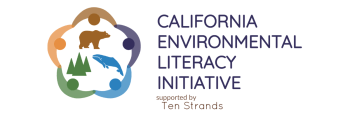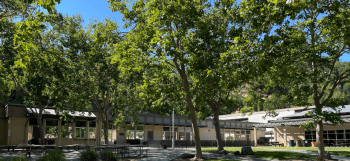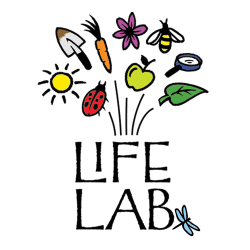| One Cool Earth is a non-profit organization with programs in San Luis Obispo and Santa Barbara Counties rooted in the belief that every child deserves a place to grow. They support lifelong wellness and environmental stewardship for families and youth from birth through young adulthood, cultivating a thriving, resilient community – one garden at a time. Their School Garden Program works with schools to champion garden education as a way of teaching students hands-on skills, science, nutrition, technology, and environmental literacy. |  |
| Using school garden spaces as living laboratories, they provide NGSS-aligned science, nutrition, and nature-focused education at SLO County public schools. The Garden Program offers two tiers for schools to choose from along with numerous add-ons, including garden lunch club, family cooking nights, seasonal farm stand, waste audits, summer garden care, and virtual or in-person field trips. |
 | Play Grove is a garden-based enrichment program designed for 3-5 year olds located in San Luis Obispo at their central garden on Laureate Lane. As an extension of One Cool Earth’s seasoned learning model, they know that children grow best when learning outside through play. They are a nature-based and place-based enrichment program. This means they use the environment as a guide as they play, grow, create art, garden, and learn together. Play Grove allows young children to access this experience alongside enthusiastic playguides in a nature-based environment. |
| Since 2020, One Cool Earth has proudly partnered with Atascadero Unified School District (AUSD) to steward and grow the district’s 1.5-acre farm—a dynamic and educational space that serves both students and the broader school community. The AUSD farm is home to 60 thriving dwarf fruit trees, native pollinator gardens that support local biodiversity, and abundant growing beds and rows that produce seasonal fruits and vegetables. This year, they partnered with the local Resource Conservation District to plant over 100 natives onsite! Most of the harvest is integrated directly into school lunches through AUSD Food Services, providing students with fresh, hyper-local produce. | 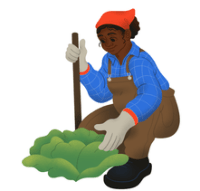 |
| Each week, high school students engage in hands-on agricultural education through Career Technical Education (CTE) programming, working alongside their experienced farm manager. From planting and harvesting to soil building and crop processing, students gain valuable skills in sustainable agriculture, food systems, and environmental stewardship. They also offer elementary school farm field trips! |
| Brief nature experiences, even as short as 10 minutes, have been shown to significantly improve mood and reduce stress among college students. As part of their commitment to supporting youth through every stage of their educational journey, One Cool Earth’s College Mentorship Program provides meaningful opportunities for early adults to grow as leaders, educators, and changemakers. We partner with Cal Poly, Cuesta College, and other institutions to engage students studying environmental science, agriculture, child psychology, and education. | 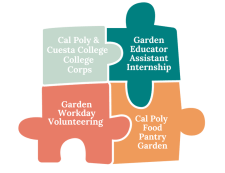 |
| Through internships, volunteer events, and mentorship opportunities – including support for the Cal Poly Food Pantry Garden—college students gain hands-on experience while contributing to our mission. This program is a key part of their vertical integration strategy, fostering a lifelong connection to environmental stewardship and youth wellness. One Cool Earth also offers links to garden education resources for educators and parents plus other types of environmental education. Check out the One Cool Earth website to learn more. |



